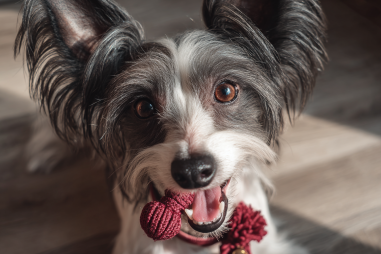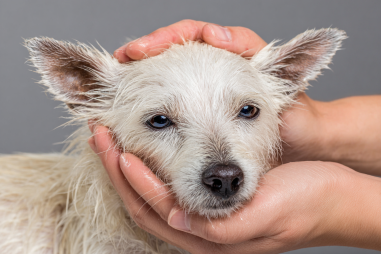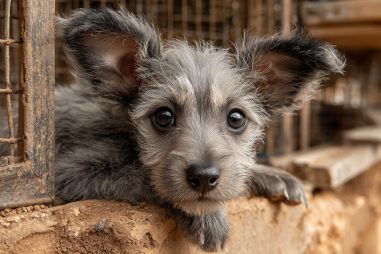Feeding your Chinese Crested dog the right diet is a key factor in ensuring they live a happy, healthy, and vibrant life. This unique breed, known for its playful personality and distinctive appearance, has specific nutritional needs that can differ from other dog breeds. Understanding these requirements, along with best practices for feeding, can help you create an optimal meal plan that supports their energy, skin health, and overall wellbeing. Let’s explore the essential components of a balanced diet tailored specifically for your Chinese Crested dog.
Nutritional Profile of Chinese Crested Dogs
The Chinese Crested dog is a small, delicate breed, so their nutritional profile reflects their unique makeup. They require a balanced diet rich in high-quality proteins to support their muscle mass and energy levels. Protein sources such as chicken, turkey, fish, or lamb are ideal choices. Additionally, because their skin can be sensitive, healthy fats—especially omega-3 and omega-6 fatty acids—are crucial to promote skin elasticity and reduce dryness or irritation.
Carbohydrates should come from wholesome sources like sweet potatoes, brown rice, or oats to provide steady energy without causing excessive weight gain. Vitamins and minerals like Vitamins A, E, zinc, and biotin contribute to maintaining their skin, coat, and immune system. Calcium and phosphorus are also important for their bone health, given their small frames and active disposition.
Recommended Commercial Dog Foods
Choosing the right commercial dog food can simplify your Chinese Crested’s nutrition while ensuring they get a well-balanced meal. Look for premium brands that list real meat as the first ingredient and avoid those with fillers like corn, wheat, or soy, which may contribute to allergies or digestive issues in sensitive breeds.
Some recommended commercial dog foods for Chinese Crested dogs include:
- Blue Buffalo Life Protection Formula: High in protein with wholesome grains and antioxidants.
- Hill’s Science Diet Adult Small Paws: Formulated specifically for small-breed dogs with nutrient-rich ingredients.
- Wellness CORE Grain-Free Small Breed: Grain-free options with probiotics and omega fatty acids.
- Royal Canin Chinese Crested Adult: Tailored directly for this breed’s nutritional needs and skin sensitivity.
Always transition your dog gradually to a new food to avoid stomach upset, and consult your veterinarian if you notice any adverse reactions.
Homemade Diet Considerations
For owners who prefer preparing homemade meals, it’s essential to carefully balance ingredients to meet all dietary requirements. Protein should remain the cornerstone, with lean meats like chicken, turkey, or fish being excellent choices. Incorporate a variety of vegetables such as carrots, green beans, and pumpkin for fiber and vitamins.
Grains or starchy vegetables like rice or sweet potatoes supply healthy carbohydrates, while small amounts of healthy oils like fish oil or flaxseed oil provide necessary fatty acids. Supplements such as calcium and multivitamins might be required to prevent deficiencies.
Keep in mind that homemade diets demand precise measurement and appropriate supplementation to avoid nutritional imbalances. Consulting a veterinary nutritionist can help you create a meal plan that addresses your Chinese Crested’s individual needs. It’s also important to avoid feeding harmful human foods like onions, grapes, chocolate, and excessive salt.
Special Dietary Needs and Allergies
Chinese Crested dogs can be prone to food sensitivities or allergies, especially given their sensitive skin and digestive systems. Common allergens include beef, dairy, wheat, and soy. If your dog exhibits symptoms such as itching, redness, excessive licking, gastrointestinal upset, or chronic ear infections, a food allergy could be the culprit.
In these cases, switching to a hypoallergenic diet or limited ingredient foods can help identify and eliminate triggers. Novel protein diets featuring duck, venison, or fish are often recommended. Grain-free options may also benefit dogs with suspected carbohydrate sensitivities, though it is important to monitor overall nutrient levels.
Always work with your vet to conduct food trials and select an appropriate diet to manage allergies while ensuring nutritional balance.
Portion Control and Feeding Schedule
Due to their small size, Chinese Crested dogs have relatively modest food requirements but possess a fast metabolism that benefits from consistent feeding routines. Overfeeding can lead to obesity, which puts strain on their joints and internal organs. Typically, adult Chinese Crested dogs require between 1/3 to 1 cup of food daily, divided into two meals.
For puppies, the feeding frequency should be increased to three or four meals a day with appropriate portion sizes. Measuring food portions accurately prevents overeating, and keeping to regular feeding times helps regulate digestion. Monitoring your dog’s weight and body condition is the best way to adjust portions as needed.
Supplements and Treats
Supplementing your Chinese Crested’s diet can help enhance specific health areas, but it should be done thoughtfully. Omega-3 fatty acid supplements, such as fish oil capsules or liquid, are beneficial for maintaining healthy skin and a shiny coat. Probiotics can aid digestion and improve gut health, especially during or after antibiotic treatment.
Glucosamine and chondroitin supplements might be considered if your dog shows early signs of joint stiffness or arthritis, which can sometimes appear with age. Always talk to your veterinarian before adding supplements to your dog’s regimen to ensure proper dosages and avoid interactions.
Treats should be wholesome and given in moderation. Opt for natural, low-calorie options like small pieces of cooked meat or specially formulated dog treats made with limited ingredients. Avoid sugary or salty snacks, and never substitute treats for balanced meals.
Tips for Picky Eaters
Chinese Crested dogs sometimes develop picky eating habits, which can be worrisome for owners. Encouraging healthy eating behaviors involves making meals appealing and maintaining a consistent feeding schedule. Here are some tips to help picky eaters:
- Warm up the food: Slightly warming wet or homemade food can enhance aroma and taste.
- Mix flavors: Combine dry kibble with a small amount of wet food or broth to entice eating.
- Avoid feeding table scraps: This prevents developing a preference for less nutritious, human foods.
- Establish routine: Offer meals at set times and remove uneaten food after 20 minutes to encourage hunger-driven eating.
- Check health: If your dog suddenly refuses food, consult your vet to rule out dental pain or illness.
Patience and consistency are key when managing a finicky eater. Sometimes combining these strategies can improve your Chinese Crested’s appetite and overall nutrition.
Feeding your Chinese Crested dog the right diet involves understanding their unique nutritional requirements and choosing appropriate foods, whether commercial or homemade. By paying attention to protein quality, healthy fats, managing allergies, controlling portions, and providing supplements when needed, you can support your dog’s health and happiness throughout their life. With a bit of care and knowledge, mealtime can become a joyful and nourishing experience for both you and your beloved furry friend.







